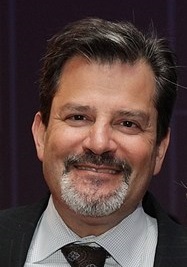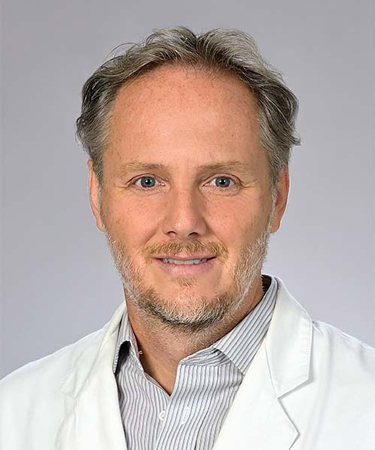Monday January 30, 2023 –
Thursday February 02, 2023
7:30am-12:50pm EST
JAN 30 – FEB 2, 2023
Hospital and Internal Medicine: A Clinical Update and Review of Common Problems
Event Details
When
Where
Lido Beach Resort
Sarasota, Florida
Event Code
SEMLA-3720230130
Course Topics
Day 1
Practical Approach to the Patient with Potential DVT (Horowitz)
Upon completion of this session, using multiple research trials as well as applying recommendations from the ACCP, AAFP/ACP, and the AHA/ACC, the participant should be able to: GL, COMP
- Obtain an appropriate medical history to better identify those patients at risk.
- More confidently evaluate and assess the patient suspected of having DVT.
- Better manage patients with the confirmed diagnosis of DVT.
Practical Approach to the Patient with
Hypertension. (Horowitz)
Upon completion of this session, using multiple
research trials as well as the current JNC
recommendations, the participant should be able to: GL, COMP
- Apply the current JNC recommendations for
treatment of hypertension. - Develop a rational approach to choosing
medication in treating hypertension. - Decide when and how to evaluate for secondary causes of hypertension.
Cardiac Issues in Peri-Operative Risk Assessment. (Horowitz)
Upon completion of this session, using multiple research trials, as well as the recommendations of the ACC/AHA, the participant should be able to: GL, COMP
- Develop a consistent approach to the cardiovascular risk stratification for patients having non-cardiac surgery..
- Determine the factors involved in maximizing cardiovascular outcomes for patients having non-cardiac surgery.
- Assess the co-morbidities associated with valvular heart disease, tobacco use, and hyperlipidemia in the setting of non-cardiac surgery.
Update on the Management of COPD and Asthma in the Hospitalized Patient (Williams)
Upon completion of this session, the participant should be able to: COMP, GL
- Perform initial management and stabilization of the patient with asthma or COPD exacerbation and distinguish between the strategies for each condition.
- Develop an evidence-based strategy for the management of COPD based on the GOLD criteria.
- Prescribe an effective therapeutic strategy for asthma, taking into account recent studies on the safety and effectiveness of various agents.
- Detect conditions that may mimic asthma or COPD in the clinical setting.
Overview of the Inpatient Management of Skin and Soft Tissue Infections (Williams)
Upon completion of this session, the participant should be able to: EBM, COMP
- Review the clinical presentation and categorization of common skin and soft tissue infections.
- Differentiate common non-infectious conditions that can mimic skin and soft tissue infections.
- Based on evidence from the CDC and standard of care publications, recognize and incorporate the changing epidemiology and resistance patterns impacting skin and soft tissue infections into therapeutic plans.
- Recognize the types of drug-associated rashes and formulate an effective treatment plan for each.
Day 2
Update on the Management of Acute Coronary
Syndromes. (Williams)
Upon completion of this session, the participant
should be able to: GL, COMP
- Distinguish the forms of ACS and their relative prognoses.
- Based on the most recent AHA/ACC guidelines, Apply the appropriate initial management of patients experiencing acute coronary syndromes.
- Based on the most recent AHA/ACC guidelines, categorize the therapeutic options for patients with unstable angina and post MI.
- Based on the most recent AHA/ACC guidelines, Employ the secondary prevention strategies for patients who have experienced an acute coronary syndrome
Update on the Evaluation of Chest Pain (Williams)
Upon completion of this session, the participant should be able to: GL, COMP
- Based on recent standard of care publications, review the contribution of history, physical exam, and EKG findings to the evaluation of chest pain.
- Distinguish ischemic EKG changes from their common mimics.
- Apply the use of novel and standard cardiac biomarkers to the diagnosis of ACS.
- Based on the guidance from the ACC/AHAS and recent significant research studies, determine the best evaluation strategy for the individual chest pain patient.
Update on the Management of Acute Coronary Syndromes (Williams)
Upon completion of this session, the participant should be able to: GL, COMP
- Distinguish the forms of ACS and their relative prognoses.
- Based on the most recent AHA/ACC guidelines, apply the appropriate initial management of patients experiencing acute coronary syndromes.
- Based on the most recent AHA/ACC guidelines, categorize the therapeutic options for patients with unstable angina and post-MI.
- Based on the most recent AHA/ACC guidelines, employ the secondary prevention strategies for patients who have experienced an acute coronary syndrome.
Practical Approach to the Patient with Hyperlipidemia (Horowitz)
Upon completion of this session, using multiple research trials as well as the recommendations of the NCEP, the participant should be able to: GL, COMP
- Apply the current NCEP guidelines.
- Develop a practical approach for considering the new medications available.
- Consider the new targets developed for cholesterol end point.
Practical Approach to the Patient with Diabetes (Horowitz)
Upon completion of this session, using multiple research trials as well as recommendations from the ADA, EASN, AGA, CDA, AACE, ACP, and the AAFP, the participant should be able to: GL, COMP
- Consider this primer on management.
- Distinguish the patient who is likely to go on to develop complications and appreciate the potential long-term course.
- Apply the current guidelines for therapy and access the anticipated outcome goals.
Day 3
Practical Approach to the Patient with Headache (Horowitz)
Upon completion of this session, while applying recommendations from the IHC, NHF, AAFP, AAN and ACP, the participant should be able to: GL, COMP
- Review the differential diagnosis of a patient presenting with the complaint of headache.
- More confidently evaluate the patient with headache and appreciate the indications for imaging.
- Develop a treatment plan that considers lifestyle changes as well as medications.
Practical Approach to the Outpatient with Dementia (Horowitz)
Upon completion of this session, while applying recommendations from the AAN and the USPSTF, the participant should be able to: GL, COMP
- Formulate a practical approach to screening for dementia.
- Discuss medication management to include polypharmacy, drug-drug interactions, as well as new drugs and their potential efficacy and side effects.
- Develop a long-term follow-up and referral process that considers cost-effective and resource management.
Strategies to Address the Issue of Preventable Hospital Readmissions (Horowitz)
Upon completion of this session, the participant should be able to: EBM, COMP
- Identify the factors which contribute to increase risk of readmission.
- Stratify the risk for readmission utilizing evidence-based tools.
- Develop a transition of care strategy to reduce the likelihood of a preventable readmission.
Update in Inpatient Renal Medicine (Williams)
Upon completion of this session, the participant should be able to: COMP
- Review the evaluation of acute renal failure in the inpatient setting.
- Discuss the forms of dialysis used in hospitalized patients.
- Review the management of hyperkalemia.
- Discuss the management of fluid overload in patients with advanced kidney disease.
- Review best practice strategies for the use of diuretics in hospitalized patients.
Update in GI Inpatient Medicine (Williams)
Upon completion of this session, the participant should be able to:
- Evaluate and manage both upper and lower gastrointestinal bleeding according to the current standard of care.
- Manage common intestinal complications like small bowel obstruction and both minor and major constipation syndromes.
- Manage common gallbladder syndromes as well as acute pancreatitis.
- Evaluate and manage both appendicitis and diverticulitis.
- Assess and strategize the common intestinal emergencies of bowel perforation and ischemia syndromes.
Day 4
Update on the Management of Stroke and Transient Ischemic Attack (Williams)
Upon completion of this session, the participant should be able to: GL, COMP
- Assess common presentations of cerebrovascular insufficiency.
- Prescribe the initial management of patients with a suspected acute CVA.
- Apply cutting edge strategies and therapies for the management of hemorrhagic and thrombotic strokes.
- Distinguish between stroke and TIA and appropriately assess the patient with TIA for early risk of stroke.
- Formulate an effective post-stroke secondary prevention plan as per the AHA/ASA guidelines.
The Evaluation and Management of Syncope and Vertigo (Williams)
Upon completion of this session, the participant should be able to: GL, COMP
- Appropriately evaluate patients with syncope or vertigo.
- Formulate a diagnostic evaluation strategy of syncope or vertigo that is based on best practices and the 2017 ACC/AHA/HRS guidelines.
- Debate the value of the various diagnostic approaches to the workup of syncope.
- Prescribe an effective therapeutic strategy for the management of both syncope and vertigo per the 2017 ACC/AHA/HRS guidelines.
Delirium, Dementia, and Psychosis – The Diagnosis and Management of the Inpatient with Mental Status Change (Williams)
Upon completion of this session, the participant should be able to: EBM, COMP
- Apply a diagnostic approach to the hospitalized patient with acute mental status change.
- Discuss the differential diagnosis of psychosis in the hospitalized patient.
- Based on a systematic review of the best evidence, formulate an evidence-based management strategy for delirium in the hospital setting.
- Develop an evidence-based screening and treatment protocol for the prevention and management of alcohol withdrawal syndromes.
Practical Approach to Thyroid Disease: 1. Hypothyroidism/Elevated TSH 2. Patient with a Thyroid Nodule (Horowitz)
Upon completion of this session, by applying recommendations from the AAFP, AACE, ACP, ATA, USPSTF, IOM, and ACOG, the participant should be able to: GL, COMP
- Appreciate the role of the screening TSH and what to do with the results.
- Develop a reasonable and cost-effective approach to diagnosing the thyroid nodule.
- Discuss the management of hypothyroidism.
Non-Surgical Approaches to the Patient with Obesity (Horowitz)
Upon completion of these sessions, using multiple research trials as well as applying recommendations from the AGA, NIH – NHLBI, ACP, AHA, ASBS, and ACS, the participant should be able to: GL, COMP
- Review the current popular diets available and marketed to your patients.
- Take into consideration unique needs of the obese patient in order to create a comprehensive approach to the treatment of obesity.
- Explain the basic physiology of obesity.
- Manage the medications available for the treatment of obesity.
Hotel Reservations
Hotel Reservation Link
To arrange your stay, please use the above “Hotel Reservation Link.” The special room rate will be available on a first come first serve basis until the group block is sold-out.
-
- Register by December 29, 2022 to take advantage of preferred rates.
- Save $9 on reduced resort fee. Reduced from $29 to $20 per room, per day.
- Free self-parking for AMS guests.
- Automatic raffle entry with registration.
Rent a Car with Enterprise or National:
Enterprise/National
To book your CME conference car rental and to receive special rates exclusively for AMS attendees, you may call or book online with our contracted companies.
About the Venue
Lido Beach Resort
Sarasota, Florida
Nestled on a private white sand beach on Florida’s Gulf Coast, Lido Beach Resort offers a serene escape with picturesque views, two heated pools, and resort amenities perfect for romantic getaways, family vacations, and peaceful retreats.
Things to Do
Sarasota, Florida
Sarasota offers a truly impressive blend of shopping, cuisine, and attractions. So sail into a breathtaking sunset, golf on lush green fairways, explore St. Armands Circle, or just relax and sink your toes into some of the finest sand in the world.
White sand beaches
21 Zagat-rated restaurants
MLB spring training
Museums, theaters, and festivals
Dozens of golf courses
Immerse Yourself In Sarasota
Let us help with your area attractions and things to do. As one of the top family vacation destinations in America, Sarasota is renowned for its cultural and environmental amenities. Not only are we home to the #2 beach in the United States as voted by TripAdvisor in 2022, but Sarasota is a mecca for patrons of the arts and has the highest concentration of Zagat® rated restaurants in Florida. It’s no wonder Sarasota was ranked one of the Top 100 Best Places to Visit in Florida in 2022 by US News and World Report.
Sarasota offers a truly impressive blend of leisure, shopping, remarkable cuisine and popular attractions. As Florida’s cultural capital, you can’t go wrong with our museums, plays, symphony, or Sarasota’s very own opera house.
So sail into a breathtaking sunset, golf on lush green fairways, explore unspoiled fishing waters or just relax and sink your toes into the finest beach sands in the world.
If you’re not grabbing your sunblock already, keep reading about all that Sarasota has to offer.
Sarasota Beaches
With numerous beaches to choose from, the most notable being Siesta Key Beach with its quartz crystal, powdered sugar white sand. For those who prefer to go shelling, try out Lido Key or take a short drive to Venice Beach to hunt for fossilized shark’s teeth.

Area Attractions
From aquariums to a spring training baseball game and botanical gardens to airboat tours of gators in their natural habitat, there is something for everyone! Make sure you check out the events calendar for annual traditions including our very own Chalk Festival and the Siesta Key Master Sand Sculpture Contest.

Dining
Whether you prefer fine dining, beachfront or lighter fare, Sarasota has the highest concentration of Zagat® rated restaurants in Florida. Our award-winning dining overlooks world-class beaches, and stunning skylines, and fills downtown Sarasota. Many offer outdoor dining that can be enjoyed year-round!

Arts & Culture
The historical John and Mable Ringling Museum of Arts is the state art museum of Florida. These palatial grounds are home to a world-renowned collection of Rubens, the Circus Museum, Ca’d’Zan, Ringling’s Mansion, and Bayfront Gardens. You will also find the historic Asolo Theater on the premises. But that’s not all, Sarasota’s performing arts rival those of much larger cities.

Sports & Outdoor Activities
Voted as 2014’s Best Sport Friendly Vacations Destination by Sports Events Magazine, Sarasota and the surrounding area has over 25 golf courses, a world-class aquatics, and rowing facility, and one of the largest polo clubs in the country! Whether paddle boarding in the Sarasota Bay or running the Legacy Trail, you’re sure to find something that gets your heart racing!

Shopping
Whatever your shopping preferences are, Sarasota has something to suit your needs. Spend the afternoon in historical St. Armand’s Circle, visit the Ellenton Outlet Mall just 20 minutes North or enjoy our newest addition- the high-end shops of University Town Center (more than 100 stores).

Presented By

David Horowitz, MD
Professor of Clinical Medicine, Perelman School of Medicine at the University of Pennsylvania; Associate Chief Medical Officer, University of Pennsylvania Health System; Philadelphia, PA

Kendal Williams, MD, MPH
Professor of Clinical Medicine, University of Pennsylvania Perelman School of Medicine; Philadelphia, PA
Accreditation
American Medical Seminars, Inc. designates this live activity for a maximum of 20 AMA PRA Category 1 Credits™. Physicians should claim only the credit commensurate with the extent of their participation in the activity.
Webinar Details
Live Webinar Access Information
Webinars are held via zoom and the Wednesday prior to the conference start date, an email will be sent with the zoom link.
Open For Registration
Cancellation & Refund Policy
We understand that plans may change. Please review our cancellation and transfer options below:
30+ Days Before Conference Start Date
- Refund: Full refund minus a $50 processing fee.
- Transfer: Registrations can be transferred once, at no cost, to another conference within two years. Alternatively, registration may be placed “on hold” for up to 12 months, allowing participants to choose a suitable conference for transfer within that period.
Less Than 30 Days Before Conference Start Date
- Refund: No refunds available.
- Transfer: Registration may be transferred to another conference within 2 years at no cost. Alternatively, registration may be placed “on hold” for up to 12 months, allowing participants to choose a suitable conference for transfer within that period.
Additional Notes
- No-shows are non-refundable and non-transferable.
- If we cancel a conference, you may choose a full refund or transfer to another event.
On-Demand Courses
- All sales are final. No refunds or transfers.
Invitation Letters
If American Medical Seminars issued you an Invitation Letter to attend a CME conference in the United States and you need to cancel your registration, we will only refund 50% your registration fee. This is to cover the cost of your Invitation Letter and processing costs. By registering, you agree to the non refundable portion of the registration.
Disclaimer
In the event that AMS is required to cancel a live conference, registrants will receive a full refund within 7 business days. AMS is not responsible for charges associated with cancelled flights or hotel rooms.
How to Request a Cancellation or Transfer
Requests must be submitted in writing to mail@ams4cme.com or by calling 1-800-267-4263.
Note: By registering, you agree to this policy.


